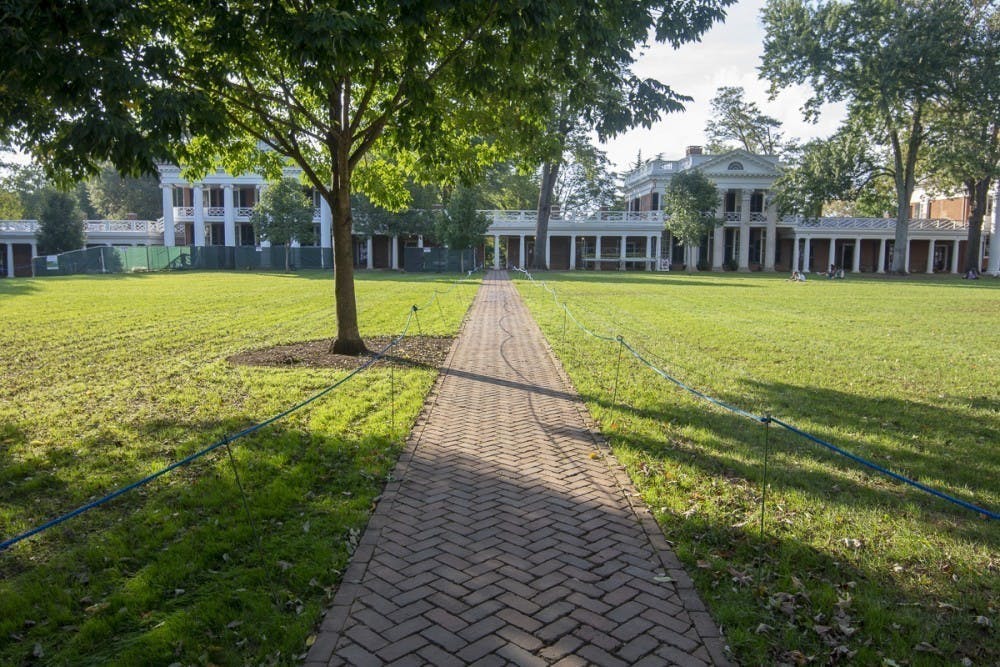Lea en español | 中文版请点击此处
I think that 99 out of 100 people would say that they would prefer to take classes in Charlottesville rather than at home, even if they were virtual. After these first few weeks of classes, I have evenly split my time between both, so here’s my honest evaluation about living and learning in both locations this semester, as well as some tips for online classes.
At home, my life was generally easier. Specifically, my life was free from distractions. There was no temptation to text my friends and make plans to hang out on the Lawn or to talk to my roommates about what we’re procrastinating on. Even as I sit in my room writing this column, my mind wanders towards asking a couple of friends to meet for dinner later.
As a result, online classes seemed easier to attend at home as I rarely had anything to do besides work. This leads me to my first piece of advice — to improve your focus during Zoom lectures, put your phone out of sight. When I could see my phone even just in the corner of my eye during lectures, thoughts about texting friends or checking social media filled my mind, shifting my attention away from the lecture. I noticed a tremendous improvement in my level of attentiveness during both synchronous and asynchronous lectures when I couldn’t see my phone.
This also leads me to my next piece of advice — don’t procrastinate. Online classes and asynchronous lectures make procrastination far too easy. It’s important to resist the temptation of doing nothing so you don’t end up five lectures behind in your history class. In my mind, procrastination is about making a choice of whether or not to work. Everyone procrastinates to some extent, and usually, everyone chooses to eventually work at some point, so stop wasting time and do that statistics homework now instead of 2 a.m. tomorrow night.
So yes, life in Charlottesville is a little more stimulating, but what about the health risks? Well, one major upside to living at home is that the risk of being exposed to COVID-19 is significantly lower. Having already been through a quarantine while on Grounds, I can definitely say that not being able to leave my room at all — except to use the bathroom and grab food out of the refrigerator — was enough to make me wish I was back home. Living at home grants some level of assurance and certainty about not getting sick, removing a degree of anxiety associated with risking exposure and subsequently having to quarantine.
Another downside to life in Charlottesville is the increase in responsibilities. Having to buy groceries, cook meals and wash dishes are all relative drawbacks to living without your parents. Now, that’s not to say having responsibilities in your life is a bad thing — in fact, having more responsibility is likely a good thing for personal development. However, the increase in these responsibilities pulls more time away from studying and “free” time, which is why I’m considering it a disadvantage of living in Charlottesville.
In an effort to get this free time back, I have started two habits. The first is waking up earlier. You don’t need to take calculus to understand that you can get more time out of your day by simply being awake longer in a 24-hour period. Waking up earlier gives me more time to finish assignments before class and thus have more free time later when I want it.
The second habit is setting small goals that force me to work more efficiently. For example, I’ll force myself to finish an assignment or a reading before I can eat lunch. By making the completion of homework a requirement for me to eat lunch, I create a strong incentive for myself to get my work done. I know it seems pretty weird, but it works for me and I plan on continuing this habit throughout the semester.
Less free time and more responsibilities aside, what are the advantages of living in Charlottesville? That’s the easiest question all week — friends. No amount of FaceTimes and text messages could replace the physical, in-person experience of living with my friends again after not seeing them since March. Part of a downside to living at home was missing out, or at least the fear of missing out despite the fact that there really isn’t that much to miss out on.
While at home, I felt a certain amount of unhappiness and discontent from the absence of the social experience that I’d normally expect at the start of a semester. However, returning to Charlottesville settled most of these sentiments. Throughout this column, I’ve tried to list some meaningful and tangible advantages of living at home — I can’t forget about the quality time I get to spend with my dog, as well. But compared to the upsides of seeing friends and simply being back in Charlottesville, those benefits feel meaningless now. So no surprise here, I would choose living in Charlottesville over living at home 10 out of 10 times, even during a pandemic.
Mario Rosales is a Life Columnist at The Cavalier Daily. He can be reached at life@cavalierdaily.com.







